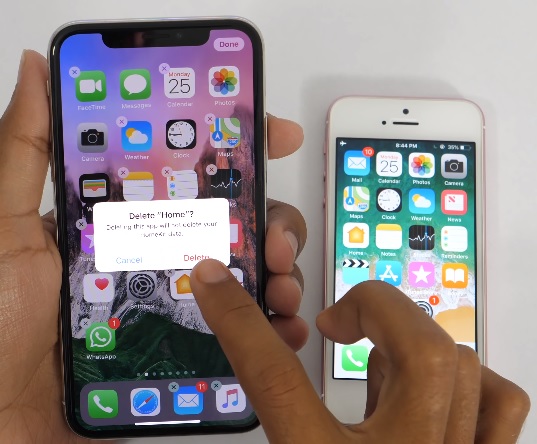
Nothing hurts the average Nigerian than losing money to fraud. It hits differently when they lose their money through fake bank alerts. That means someone played on their intelligence and stole from them. That hurts. Here are a few pointers to note to avoid being a victim of fake bank alerts.
The advent of cashless policy is a good one. Cash-less Nigeria, according to Wikipedia, is a policy established in the year 2012 by the Central Bank of Nigeria to curb excesses in the handling of cash in the Nigerian federation. It prescribed cash handling charges on daily withdrawal above five hundred thousand Naira (N500,000.00) for individuals and three million Naira for corporate bodies (N3, 000,000.00). The policy was enforced not to eliminate the use of cash but to reduce the volume of cash in circulation.
This is a good policy, but fraudsters have manipulated the good cause to defraud people, and steal their money.
Now, it is general information that people are defrauding with the use of fake bank alerts. The more reason why you need to be educated about this to avoid them making a fool out of you and stealing money that they are not entitled to.
What information do these fraudsters need to send you fake bank alert?
Your phone number
Your account number
Without the above information, it is impossible for them to send you fake messages, and when you eventually figure out what they’ve done, it would be impossible to track them.
The reason is, they have a dedicated SIM card for perpetrating this evil. They figure out the format that your bank uses to send you credit or debit alerts, and copy to send to you.
Popular apps for fake bank alerts
Fake bank alerts don’t just happen. There are certain apps these criminals utilise for this crime. The following are the top apps that are used to send fake bank alerts in Nigeria.
How do you detect fake bank alerts?
What are the red flags to look out for? You might want to scroll past this thinking you might not need it. Only victims understand how important knowing what the red flags are because they have dealt with it first-hand and it must have really hurt to see money that they’ve kept “safely” stolen without trace.
Remember, this could happen to anyone, but to prevent you from falling victim, here are the things to look out for.
Check out for misspellings.
They will ask for your account number which is not out of place, and also ask for your phone number, and THAT is out of place. That’s a red flag. No one needs your phone number to send you money.
Your account balance will not be credited. The real bank alert will show you how much you had before the alert and after the alert.
Have a precise knowledge of how much was there before, and if it corresponds with the previous amount then you’re on track. If not you might just be about to be scammed.
If you were sent a mail, check the email source and look out for the official email address of your bank.
Check the authenticity of the mobile app used.
Let’s take a further look about how to detect a fake bank alert transfer payment.
1. Check your email
Check your email that is linked to your bank – the one that is registered with your bank. If you don’t have an email for bank alerts, then you can open one and link it to your account to help you clear your doubts about the financial transaction that took place.
With this email, you also get access to your bank statement and your account balance, all in your email.
Once you received the suspected bank alert, check your email source.
2. Balance will not be credited
This can be done using your bank USSD code or mobile banking app, you can also check your account balance through internet banking or ATM machine. A fake bank alert will never reflect in your account balance or statement.
3. Check the credit alert you received if it contains your available bank
Fake bank alerts will not contain your available balance so you can easily detect the fake alert if your account balance does not reflect along with transfer payment done by your customers/buyers.
4. Avoid clicking on links that request your bank account details or given out your bank information to stranger either via email, phone call or online platform. Be warned and stay safe.
The 7 types of alert that you should know
According to “Bank Rate”, these seven alerts serve several different purposes and can help you bank better.
Low balance alert
Direct deposit alert
Unusual account activity alert.
Large purchase alert.
Large ATM withdrawal alert.
Debit card alert.
Profile change alert.
SOURCE: Tribuneonline
Rice, a staple for Christmas celebrations in Nigeria, has become a luxury this year. Soaring…
Panic erupted on Saturday at a concert in Lagos when the stage collapsed during Odumodublvck’s…
The Federal Government of Nigeria has allocated ₦6,364,181,224 billion for the refurbishment and rehabilitation of…
The black market dollar to naira exchange rate for today, 22nd December 2024, can be…
The Nigerian National Petroleum Company Limited (NNPCL) has refuted claims that the 60,000 barrels per…
Manchester City finds itself in unprecedented turmoil, with relegation-level form showing little sign of improvement.…